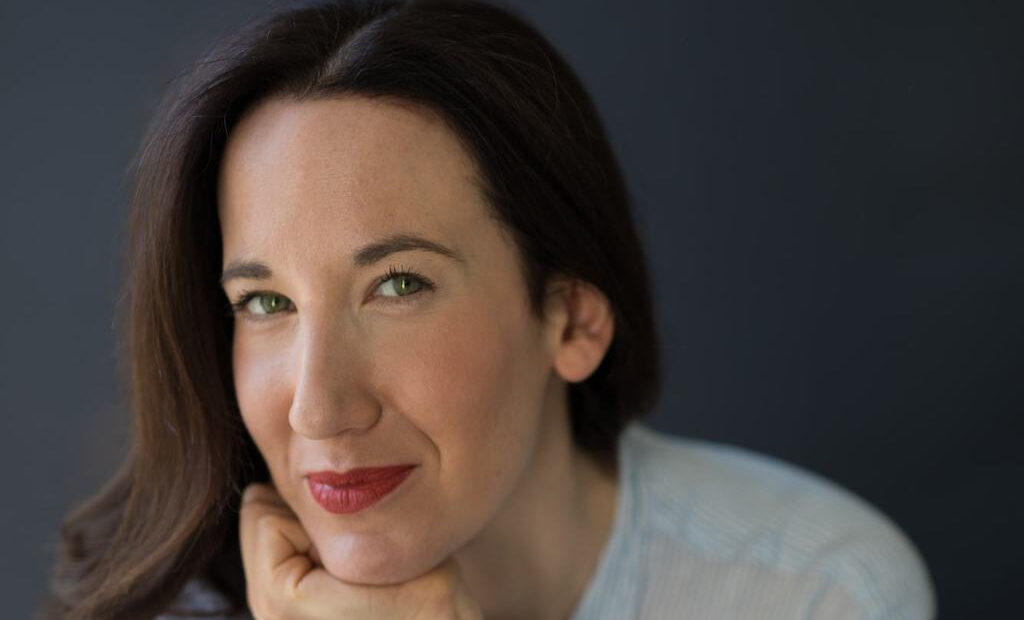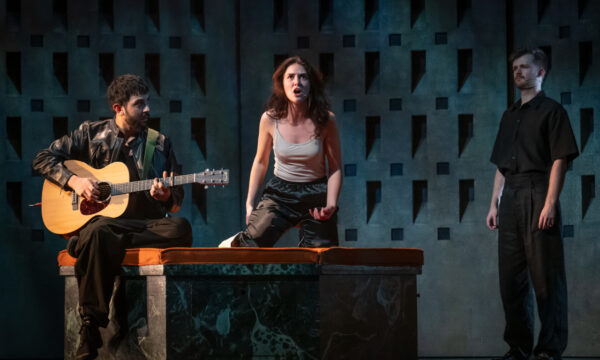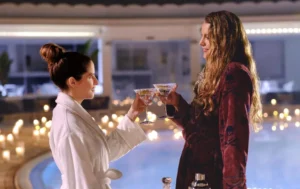“Queer stories are so absent and so rich for drama, joy and conflict”: An interview with Stephanie Martin on Juniper and Jules

Juniper and Jules is a queer love story written by Stephanie Martin. It explores female love and sexuality in a fun and dynamic manner, and stars Stella Taylor and Gabriella Schmidt as the titular characters of Juniper and Jules respectively. First scheduled for the Soho Theatre in April 2020, the pandemic put a halt to a lot of live theatre, benching Juniper and Jules for the next few years. Now, in May 2022, it finally arrives at Soho Theatre with the same heart and vision but with a whole lot more experience.
Martin, its writer, is a playwright who wants to tell all kinds of queer love stories with dynamics not typically seen in mainstream media. While the characters are specific to the queer experience, she believes Juniper and Jules has a universal message for anyone who has ever fallen in and out of love. With credits including Joy, Alkaline and Passion Fruit with Dior Clarke, Martin is currently working on her first ever feature film alongside the BFI. The Upcoming caught up with her ahead of the play’s opening to discuss queer representation and everything else Juniper and Jules.
How was it coordinating with Bethany Pitts to direct Juniper and Jules?
A good director is a gift and Beth has been invaluable in shaping and creating Juniper and Jules over the last several years, turning it from words and messy thoughts into a living, breathing thing. Together we’ve found the style, feeling, energy and world of the piece, which is a collaborative process, and not something you can imagine when it’s just you and the words.
It was originally supposed to be performed at the Soho Theatre in April 2020 until the pandemic halted things. Has your vision for this play evolved and changed in the last two years?
I started writing this play in 2017. It’s one of my first ever scripts so it’s been quite a journey – from someone first starting the joy of putting words down on paper, to now, with a little more understanding of structure and other writing techniques. We’ve found depths, tensions and joys over the last few years that are now in the script. I’d say the vision has remained but we’ve found lots of juicy new elements.
Was performing Juniper and Jules online rather than onstage ever an option for you?
One of our favourite parts of performing at Vault Festivals in 2019 was seeing so many queer couples in the audience. I think, for that reason, an online version never came up for us because it was so lovely to have the version as a group experience.
How authentic did you want the casting for the leads to be in terms of their real-life sexuality? Or was the casting based more on the chemistry between the two actors?
This is such an interesting conversation and, of course, queer actors can play straight and vice versa. However, for this piece, having queer representation was essential for many reasons. Gaby and Stella have both been brilliant collaborators and helped create the piece – I’m very grateful to them. I have worked with Gaby and known her for years, so she was always my Jules. When we were hunting for a Juniper, Stella – someone I’d met once, very briefly – I just knew was the right person to play Juniper and be Gaby’s lover. I should be a matchmaker, really! One of our intentions for the piece is to show women having fun and great sex – it feels quite rare. So often it seems like queer female narratives are defined by angst and not by pleasure. We definitely want to change that.
There is very little representation for different types of LGBTQ+ relationships – it’s often two gay men or two lesbian women, and when bisexuality is represented it’s usually in a heterosexual relationship. How important was it in the process of creating these characters that you chose this particular dynamic?
Obviously, so often, queer narratives are gay men, because sexism. These characters came to me naturally and organically – it wasn’t a case of box-ticking or being clever; they are just the right ones for the story. As time has gone on, it’s become clear that they are also important choices for queer representation. Often when you write a story that fulfils “diversity quotas”, certain people think you’re doing it to be clever when, actually, it’s just the story you want to tell and the characters you want to write. It’s that simple.
How do you think Juniper and Jules compares to your other works in terms of your attachment to the story, the characters and the experience?
It’s definitely very typical of my style and interests, people, relationships, histories. I’m always drawn to queer stories – similarly with Passion Fruit, a play I’ve co-written with Dior Clarke – because they are so absent and they are rich for drama, joy and conflict. Queer stories aren’t “the other” that they need to be on our screens, stages and taught in our classrooms as much as non-queer stories are. I also can’t imagine writing anything that isn’t coming-of-age, sassy, spiky romcoms or histories (I love a period drama) – I don’t think I’ll be writing sci-fi, horror or similar any time soon.
Who are you most like between the two?
1000% Jules. No further questions.
There has been a boom in LGBTQ+ content in recent years, which is a good thing, but there’s always more discussion to be had about genuine representation and pandering. Do you believe that there’s a huge gap in the execution of the two, or is any representation important?
I think you can probably spot anything pandering a mile off and it would likely just be bad?! Program, commission and stage queer stories by queer artists and then let’s see where we are.
Most LGBTQ+ media follows themes of unrequited love, rather than established relationships. How do you think Juniper and Jules combats these clichés in queer storytelling?
In terms of avoiding clichés, it’s always seemed quite simple to me: just look around at what queer love is actually like and write it. A lot of the fun comes from our lovers working out how to have an open relationship, which feels new. It’s been very interesting balancing conflict – dramatically satisfying with positive representation of queer love.
You’re currently developing a feature film with BFI. Are there any details about that project that you’d be able to share?
It’s a screen adaptation of my play Joy, which is a coming-of-age story about a young woman with Down’s syndrome living her best life, despite society’s best efforts to stop her. Hopefully it will find its way to screen before too long.
Mae Trumata
Juniper and Jules is on at Soho Theatre from 3rd May until 14th May 2022. For further information or to book visit Soho Theatre’s website here.


























Facebook
Twitter
Instagram
YouTube
RSS